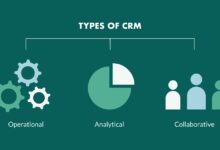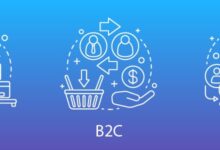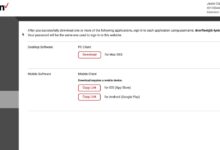CRM System for Small Business: 7 Powerful Tools to Skyrocket Growth
Running a small business means wearing many hats — from sales to customer service. But what if you could simplify it all with one smart tool? A CRM system for small business isn’t just for big corporations anymore. It’s your secret weapon to organize leads, boost sales, and keep customers coming back — all in one place.
Why Every Small Business Needs a CRM System for Small Business
?w=1200)
In today’s fast-paced digital world, managing customer relationships manually is not only inefficient — it’s a recipe for missed opportunities. A CRM (Customer Relationship Management) system for small business helps you track every interaction, automate repetitive tasks, and gain insights that drive smarter decisions. Whether you’re a solopreneur or managing a team of ten, a CRM levels the playing field.
What Is a CRM System?
A CRM system is a software platform designed to manage all your company’s relationships and interactions with customers and potential leads. It acts as a centralized database where you can store contact information, track communication history, manage sales pipelines, and even automate marketing campaigns.
For small businesses, this means no more scattered spreadsheets, lost emails, or forgotten follow-ups. Everything lives in one organized, searchable hub.
Key Benefits for Small Businesses
Improved Customer Retention: By tracking customer preferences and past interactions, you can personalize service and build stronger loyalty.Increased Sales Efficiency: Automate lead tracking and follow-ups so your team spends less time on admin and more on closing deals.Better Team Collaboration: Share customer data across departments — sales, marketing, and support — for seamless coordination.Data-Driven Decisions: Access real-time reports on sales performance, customer behavior, and campaign effectiveness.
.”A CRM isn’t just a tool — it’s a strategy.Small businesses that use CRM systems see up to a 29% increase in sales productivity.” — Nucleus Research
Common Misconceptions About CRM for Small Businesses
Many small business owners hesitate to adopt a CRM because they believe it’s too complex, too expensive, or only for large enterprises.These myths couldn’t be further from the truth..
crm system for small business – Crm system for small business menjadi aspek penting yang dibahas di sini.
- Myth 1: CRMs Are Too Complicated. Modern CRM platforms are designed with user-friendliness in mind. Many offer intuitive drag-and-drop interfaces and mobile apps.
- Myth 2: They’re Too Expensive. There are numerous affordable — even free — CRM options tailored specifically for small businesses.
- Myth 3: I Don’t Have Enough Data. Even if you’re just starting out, a CRM helps you build and organize data from day one.
Top 7 CRM Systems for Small Business in 2024
Choosing the right CRM system for small business can feel overwhelming. To help you cut through the noise, we’ve analyzed the top seven platforms based on pricing, ease of use, scalability, and essential features. Here’s what stands out in 2024.
1. HubSpot CRM
HubSpot CRM is widely regarded as the best free CRM for small businesses. It offers a powerful, no-cost plan with essential features like contact management, email tracking, deal pipelines, and live chat.
- Pros: Completely free core plan, excellent user interface, integrates seamlessly with marketing and sales tools.
- Cons: Advanced features require paid upgrades; limited automation on the free tier.
- Best For: Startups and small teams looking for an all-in-one growth platform.
HubSpot also provides educational resources and a vibrant community, making onboarding smooth even for non-tech users. Learn more at HubSpot CRM.
2. Zoho CRM
Zoho CRM is a versatile, scalable solution that’s ideal for small businesses planning to grow. It offers AI-powered insights, workflow automation, and strong mobile capabilities.
- Pros: Highly customizable, affordable pricing, built-in AI assistant (Zia), integrates with over 500 apps.
- Cons: Interface can feel cluttered for beginners; some features require configuration.
- Best For: Businesses that want flexibility and automation without breaking the bank.
Zoho’s pricing starts at just $14/user/month, and they offer a free plan for up to three users. Explore it at Zoho CRM.
3. Salesforce Essentials
Salesforce, the global CRM leader, offers a streamlined version called Salesforce Essentials tailored for small businesses with up to 10 users.
crm system for small business – Crm system for small business menjadi aspek penting yang dibahas di sini.
- Pros: Powerful automation, excellent reporting, trusted brand with enterprise-grade security.
- Cons: More expensive than competitors; steeper learning curve.
- Best For: Small businesses planning rapid growth and integration with other Salesforce products.
Priced at $25/user/month, it’s a solid investment if you anticipate scaling. Visit Salesforce Essentials for details.
4. Freshsales (by Freshworks)
Freshsales stands out with its intuitive design and built-in phone and email capabilities. It’s perfect for sales-driven small businesses that want everything in one place.
- Pros: Built-in calling and email, AI-based lead scoring, visual deal pipeline.
- Cons: Limited third-party integrations compared to HubSpot or Zoho.
- Best For: Sales teams that prioritize lead tracking and direct outreach.
Freshsales offers a free plan for up to 10 users and paid plans starting at $15/user/month. Check it out at Freshsales.
5. Insightly
Insightly is a CRM system for small business that emphasizes project management alongside customer relationship tracking. If your business handles client projects, this could be a game-changer.
- Pros: Combines CRM and project management, strong workflow automation, good for service-based businesses.
- Cons: Higher pricing for advanced features; mobile app lacks some desktop functionality.
- Best For: Consultants, agencies, and contractors managing long-term client relationships.
Pricing starts at $29/user/month. Learn more at Insightly.
6. Pipedrive
Pipedrive is built for sales pipeline management. Its visual, drag-and-drop interface makes it easy to track deals from first contact to close.
crm system for small business – Crm system for small business menjadi aspek penting yang dibahas di sini.
- Pros: Extremely intuitive pipeline view, excellent for sales-focused teams, strong automation and reporting.
- Cons: Limited marketing features; not ideal for businesses needing robust customer service tools.
- Best For: Small sales teams that want clarity and focus on closing deals.
Pipedrive starts at $14.90/user/month and offers a 14-day free trial. Visit Pipedrive for more.
7. Agile CRM
Agile CRM offers an all-in-one solution combining sales, marketing, and service features at an aggressive price point.
- Pros: Affordable all-in-one platform, includes marketing automation and helpdesk features.
- Cons: Interface feels outdated; customer support can be slow.
- Best For: Budget-conscious businesses wanting maximum features for minimal cost.
The free plan supports up to 10 users, and paid plans start at $14.99/user/month. Explore at Agile CRM.
Key Features to Look for in a CRM System for Small Business
Not all CRMs are created equal. When evaluating a CRM system for small business, focus on features that align with your goals, team size, and workflow. Here are the essentials.
Contact and Lead Management
The foundation of any CRM is its ability to store and organize customer data. Look for a system that allows you to:
- Import contacts from email, spreadsheets, or social media.
- Tag and segment contacts by behavior, location, or purchase history.
- Track interactions like emails, calls, and meetings automatically.
For example, HubSpot CRM automatically logs emails and calendar events when connected to Gmail or Outlook.
crm system for small business – Crm system for small business menjadi aspek penting yang dibahas di sini.
Sales Pipeline Tracking
A visual sales pipeline helps you see where each lead stands — from initial contact to closed deal. This transparency improves forecasting and accountability.
- Customizable stages (e.g., New Lead, Qualified, Proposal Sent, Closed Won).
- Drag-and-drop functionality to move deals through stages.
- Real-time pipeline reports and win/loss analysis.
Pipedrive excels here with its color-coded, intuitive pipeline dashboard.
Automation and Workflow Tools
Automation saves time and reduces human error. A good CRM system for small business should allow you to automate:
- Email follow-ups after a lead fills out a form.
- Task assignments when a deal moves to a new stage.
- Reminders for overdue customer support tickets.
Zoho CRM and Insightly offer robust workflow builders that let you set up complex automations without coding.
Mobile Accessibility
Small business owners are rarely at a desk. A mobile-friendly CRM ensures you can update records, log calls, or check pipelines on the go.
- Native iOS and Android apps.
- Offline access and sync capabilities.
- Mobile calling and email integration.
Freshsales and Salesforce Essentials offer some of the best mobile experiences in the market.
crm system for small business – Crm system for small business menjadi aspek penting yang dibahas di sini.
Integration Capabilities
Your CRM shouldn’t exist in a silo. It should connect with tools you already use, such as:
- Email platforms (Gmail, Outlook).
- Calendar apps (Google Calendar, Outlook Calendar).
- Accounting software (QuickBooks, Xero).
- Marketing tools (Mailchimp, Facebook Ads).
HubSpot and Zoho CRM lead in integration breadth, offering native connections to hundreds of apps via Zapier or their own marketplaces.
How to Choose the Right CRM System for Small Business
Selecting the right CRM system for small business isn’t just about features — it’s about fit. Here’s a step-by-step guide to help you make the best decision.
Assess Your Business Needs
Start by asking: What problems are you trying to solve? Common pain points include:
- Lost leads due to poor follow-up.
- Difficulty tracking sales progress.
- Inconsistent customer communication.
- Lack of data for forecasting.
Once you identify your challenges, prioritize CRM features that address them directly.
Define Your Budget
CRM pricing varies widely. While some offer free plans, others charge $50+ per user per month. Consider:
crm system for small business – Crm system for small business menjadi aspek penting yang dibahas di sini.
- Number of users who need access.
- Monthly vs. annual billing (annual often saves 10-20%).
- Hidden costs like training, migration, or add-ons.
For most small businesses, a budget of $15–$30/user/month is realistic and sustainable.
Test with Free Trials and Demos
Never commit without testing. Most CRM providers offer free trials (14–30 days) or live demos.
- Invite key team members to test the platform.
- Simulate real workflows (e.g., adding a lead, sending an email, closing a deal).
- Check mobile app performance and ease of navigation.
Use this time to evaluate user experience — if it feels clunky, adoption will suffer.
Plan for Onboarding and Training
Even the best CRM fails if your team doesn’t use it. Plan a smooth onboarding process:
- Start with a pilot group (e.g., sales team).
- Provide training sessions or use vendor tutorials.
- Migrate data carefully — clean up duplicates before importing.
HubSpot Academy and Zoho Learn offer free training courses to help teams get up to speed quickly.
Common CRM Implementation Mistakes to Avoid
Implementing a CRM system for small business is exciting, but many companies make avoidable errors that undermine success. Here are the top pitfalls and how to dodge them.
crm system for small business – Crm system for small business menjadi aspek penting yang dibahas di sini.
Skipping Data Cleanup
Migrating messy, outdated, or duplicate data into a new CRM creates confusion and reduces trust in the system. Before importing, take time to:
- Remove inactive or invalid contacts.
- Standardize naming conventions (e.g., “John Smith” vs. “Jon Smith”).
- Verify email addresses and phone numbers.
A clean database ensures accurate reporting and better automation.
Over-Customizing Too Soon
While customization is powerful, overdoing it early can lead to complexity and maintenance headaches. Start with default settings and basic workflows. Only customize once you understand how your team uses the system.
For example, Zoho CRM allows deep customization, but new users should begin with pre-built pipelines before creating custom modules.
Ignoring User Adoption
The most common reason CRM projects fail is low user adoption. If your team doesn’t log in regularly, the data becomes stale and the system loses value.
- Involve users in the selection process.
- Highlight personal benefits (e.g., less manual work, better leads).
- Appoint a CRM champion to encourage usage and answer questions.
“Technology is only as good as the people using it. Focus on culture, not just software.” — Forbes
Not Measuring ROI
After implementation, track key metrics to evaluate success:
crm system for small business – Crm system for small business menjadi aspek penting yang dibahas di sini.
- Sales cycle length.
- Conversion rates.
- Customer satisfaction scores.
- Time saved on administrative tasks.
Compare these metrics before and after CRM adoption to quantify ROI and justify ongoing investment.
How a CRM System for Small Business Improves Customer Experience
A CRM isn’t just a tool for sales teams — it’s a cornerstone of exceptional customer experience. When used strategically, it transforms how you engage with clients.
Personalized Communication
With a CRM, you can tailor messages based on customer behavior, preferences, and history. For example:
- Send birthday discounts using stored birth dates.
- Recommend products based on past purchases.
- Follow up after a support ticket is resolved.
This level of personalization builds trust and increases customer lifetime value.
Faster Response Times
A CRM with integrated helpdesk features (like Agile CRM or HubSpot) allows support teams to view a customer’s entire history at a glance. No more asking, “What was your last issue?”
- Automated ticket routing ensures queries go to the right agent.
- SLA tracking helps meet response time goals.
- Knowledge base integration empowers self-service.
Result? Happier customers and reduced resolution time.
crm system for small business – Crm system for small business menjadi aspek penting yang dibahas di sini.
Proactive Engagement
Advanced CRMs use AI and behavioral triggers to prompt proactive outreach. For instance:
- Alert sales when a lead visits your pricing page multiple times.
- Trigger a re-engagement email if a customer hasn’t purchased in 90 days.
- Schedule check-in calls after onboarding.
This proactive approach turns passive relationships into active, growing ones.
Future Trends in CRM for Small Businesses
The CRM landscape is evolving fast. Small businesses that stay ahead of trends gain a competitive edge. Here’s what’s coming.
AI-Powered Insights and Automation
Artificial intelligence is no longer sci-fi — it’s in your CRM. AI can:
- Predict which leads are most likely to convert (lead scoring).
- Suggest the best time to contact a customer.
- Automatically log calls and summarize conversations.
Zoho Zia and Salesforce Einstein are leading this charge, making AI accessible even to small teams.
Increased Use of Mobile CRM
As remote work and field sales grow, mobile CRM usage will surge. Expect more voice-enabled features, offline access, and real-time notifications on smartphones.
crm system for small business – Crm system for small business menjadi aspek penting yang dibahas di sini.
Platforms like Freshsales and Pipedrive are already optimizing for mobile-first workflows.
Deeper Integration with E-commerce and Social Media
Future CRMs will pull data from Shopify, Instagram, and Facebook directly into customer profiles. This creates a 360-degree view of the customer journey — from ad click to repeat purchase.
HubSpot and Zoho are expanding their e-commerce integrations to meet this demand.
Focus on Data Privacy and Security
With rising cyber threats and regulations like GDPR, CRM providers are investing heavily in security. Look for features like:
- Two-factor authentication.
- Data encryption at rest and in transit.
- Role-based access control.
Choosing a secure CRM protects your business and builds customer trust.
What is a CRM system for small business?
crm system for small business – Crm system for small business menjadi aspek penting yang dibahas di sini.
A CRM system for small business is a software tool that helps manage customer interactions, track sales leads, automate marketing, and improve customer service. It centralizes customer data to improve efficiency and drive growth.
Is a CRM worth it for small businesses?
Yes. Even small teams benefit from better organization, improved customer retention, and increased sales efficiency. Many CRMs offer free or low-cost plans perfect for startups.
Can I use a CRM without technical skills?
Absolutely. Modern CRMs like HubSpot and Freshsales are designed for non-technical users with intuitive interfaces, drag-and-drop builders, and guided onboarding.
How much does a CRM system cost for a small business?
crm system for small business – Crm system for small business menjadi aspek penting yang dibahas di sini.
Costs range from free (HubSpot, Agile CRM) to $50/user/month. Most small businesses spend $15–$30/user/month for a robust, scalable solution.
How long does it take to implement a CRM?
Simple CRMs can be up and running in a day. More complex setups with data migration and training may take 2–4 weeks. Starting with a free trial helps speed up the process.
Choosing the right CRM system for small business is one of the smartest moves you can make. It’s not just about organizing contacts — it’s about building stronger relationships, boosting sales, and scaling efficiently. From free tools like HubSpot to powerful platforms like Zoho and Salesforce, there’s a solution for every budget and need. The key is to start small, focus on user adoption, and grow with the system. In today’s competitive market, a CRM isn’t a luxury — it’s a necessity for sustainable success.
Further Reading:








